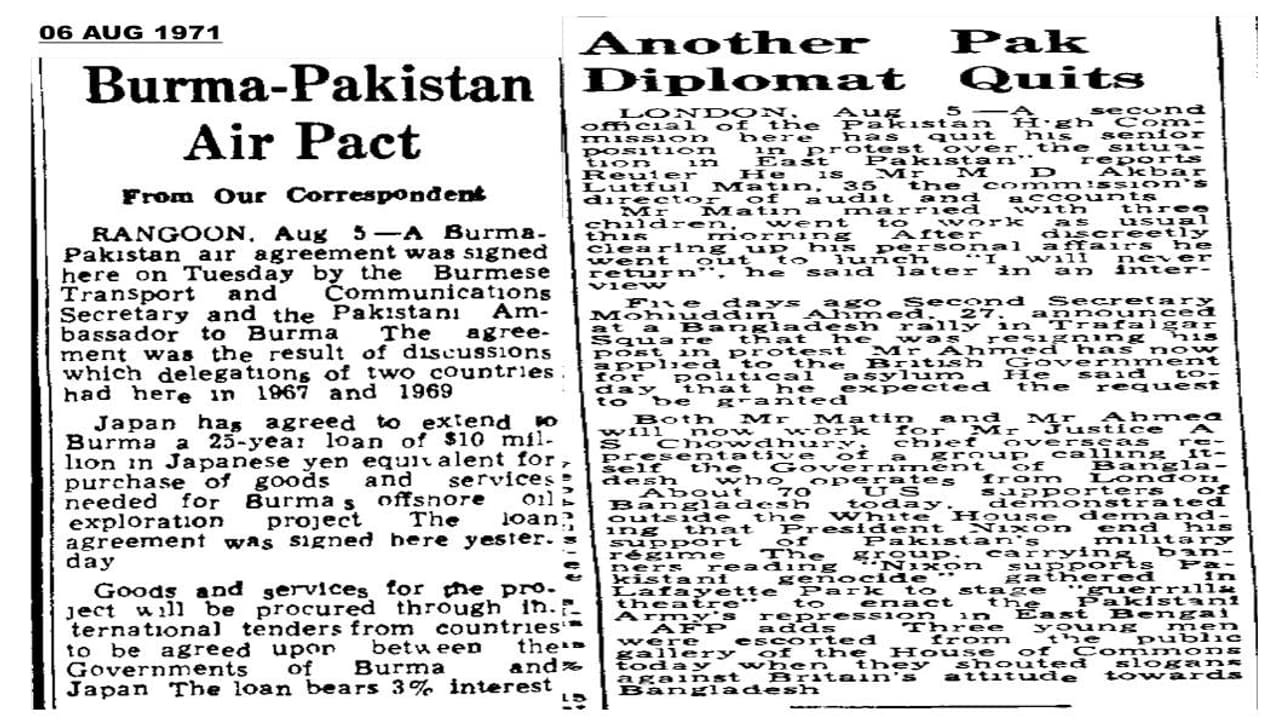Amid US President Donald Trump’s Tariff threat ,the Indian Army recalled times when Pakistan was backed by the US in the 1971 Bangladesh Liberation War for the second time. Archival clippings showed Pakistan’s war prep and diplomatic cracks.
New Delhi, A day after the Indian Army gave a historical reminder to Donald Trump on US support for Pakistan during the 1971 Indo-Pak war, it once again reflected on the events leading up to the conflict that reshaped South Asia. Marking August 6 under the theme “This Day That Year: Build Up of War,” the Army’s Eastern Command shared archival newspaper clippings from 1971 on X (formerly Twitter), offering a glimpse into the tense geopolitical atmosphere of the time. One of the clippings bore the headline “Burma-Pakistan Air Pact”, revealing Pakistan’s strategic military build-up in anticipation of a confrontation with India. Another, titled “Another Pak Diplomat Quits,” highlighted the deepening internal crisis in East Pakistan, where mass protests and civil unrest were spiraling out of control—precursors to what would become a humanitarian catastrophe. These developments culminated in the Indo-Pak war that officially began on December 3, 1971, and concluded just thirteen days later, with India’s decisive victory and the birth of Bangladesh on December 16.
Scroll to load tweet…
The reminder comes in the backdrop of former US President Donald Trump’s fresh threat to impose heavy tariffs on India over its continued import of Russian oil. Trump, who has criticized India for allegedly selling Russian oil at a profit, hinted at significantly increasing the tariffs from the current 25%. Trump’s remarks have drawn sharp attention in India, especially given the historic memory of the US siding with Pakistan during the 1971 war.
What does the News Articles Say?
The article titled ‘Burma-Pakistan Air Pact’ says a Burma-Pakistan air agreement was signed in Rangoon on August 5 by the Burmese Transport and Communications Secretary and the Pakistani ambassador to Burma. The agreement was the outcome of earlier discussions held between delegations of the two countries in 1967 and 1969.
It also notes that Japan agreed to extend a 25-year loan of $10 million (in Japanese yen equivalent) to Burma for the purchase of goods and services required for the country’s offshore exploration project. The loan agreement was signed the previous day. Goods and services for the project are to be procured through international tenders from countries mutually agreed upon by the governments of Burma and Japan. The loan carries an interest rate of 3%.
The second article, titled Another Pak Diplomat Quits, states that a senior official at the Pakistan High Commission in London resigned in protest against the situation in East Pakistan. It also highlights the protest by around 70 Bangladesh supporters outside the White House, demanding that the then President Richard Nixon withdraw his support for Pakistan’s military regime. Protesters held banners accusing Nixon of supporting “Pakistani genocide” and performed guerrilla theatre in Lafayette Park to depict the Pakistani Army’s repression in East Bengal.
